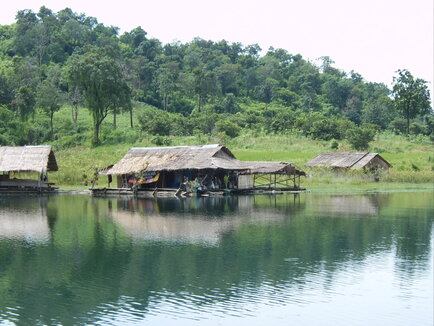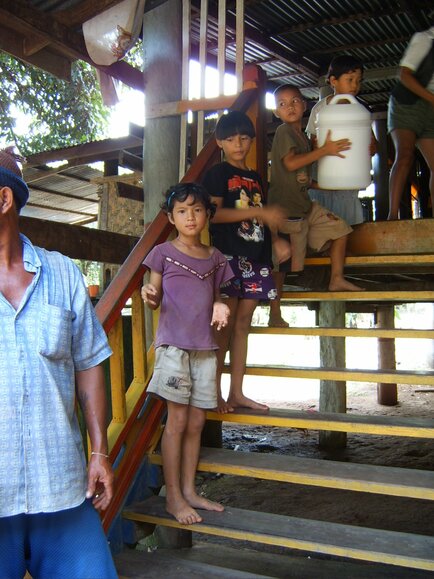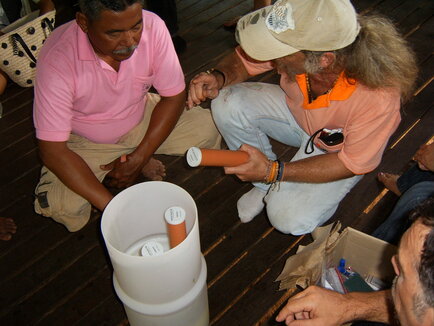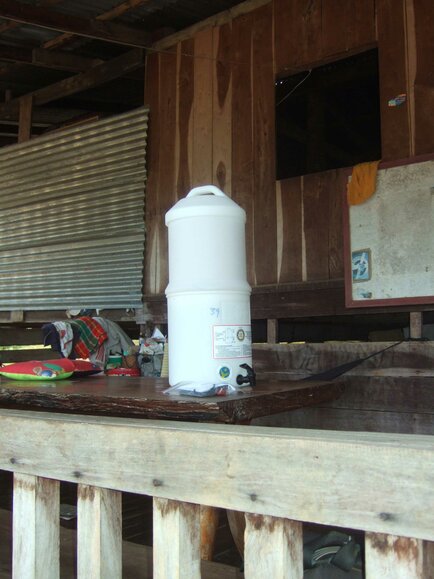Rotary District 2000, Switzerland | Combat diarrhea in Ban Bo Ong and Wang Hin, Thailand, Thailand
120 families in off-grid and remote villages have been given Katadyn Drip Filters to provide clean water.
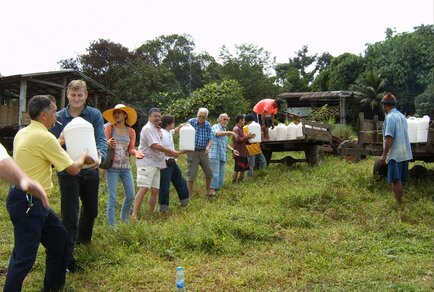
| Project: | Combat diarrhea in Ban Bo Ong and Wang Hin (Thailand) |
| Customer: | Rotary District 2000, Switzerland |
| Product: | Katadyn Drip Filter Ceradyn |
| Territory: | Thailand |
Product Description
The village of Ban Bo Ong is located on the Khao Laem reservoir, about 110 km north-west of Bangkok on the Burmese border. The village is a settlement consisting of around 400 homes scattered about on the west bank of the reservoir. The reservoir that was created in the 80s cuts the village off from civilization. There are no access roads, no electricity and no communication. The villagers get their water either from the lake or by collecting rainwater in drums. Both sources are heavily polluted. The poorest 60 families have now been given Katadyn Drip filters.
The second project relates to the village of Wang Hin, situated about 90 km north-east of Udon Thani heading toward the Lao border. Around 300 families live in Wang Hin. Numerous children suffer from diarrhea. The firrst phase of the project in Wang Hin also saw the 60 poorest families being provided with a filter.
Product
Since using the Drip filters is extremely simple, they proved highly popular and were immediately put into use after a brief instruction. These gravity filters are based on the principle that two plastic vessels are placed inside each other in such a way that the top one seals the bottom one. Three ceramic elements are screwed into the base of the top vessel. The top vessel is filled with dirty water, which, due to force of gravity, drips through the filters into the bottom vessel being cleaned in the process. The bottom vessel is equipped with a drain cock, thus enabling a family to drink and use clean water at all times. The vessels have a 10 liter capacity. Filling them 2 to 3 times a day provides an ample supply of clean water for the
entire family. Equally important as having clean water to drink is also the availability of clean water for personal hygiene and cooking with.
Summary
About 2 months after starting to use the filter the Rotary Clubs involved in the project could see that the filters were very popular among the families and were indeed being used. The instances of diarrhea have virtually disappeared and the health of the population has improved substantially. In the wake of these experiences, the Thai Rotary Clubs are planning to equip up to 60 more villages with ceramic gravity filters.
